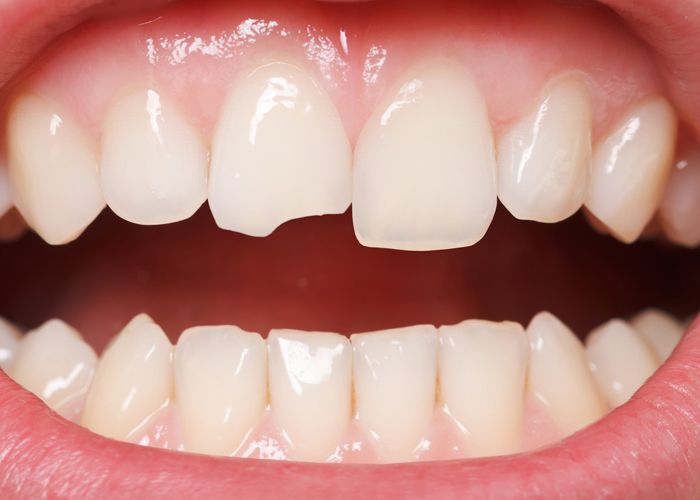Treatment Options for Chipped Teeth
By John Rink DDS on October 13, 2015
 When the teeth become chipped, it's usually occurs unexpectedly and without warning. It's important to seek treatment as soon as possible because a chipped tooth can lead to more severe dental damage the longer they're left untreated. Fortunately, restorative dentistry treatments can repair the damage caused by dental chips, thereby restoring your dental health. To find out which treatments are right for your needs, we invite you to schedule a consultation with Charleston dentist John Rink. In the meantime, learn more about the treatments for chipped teeth in this overview.
When the teeth become chipped, it's usually occurs unexpectedly and without warning. It's important to seek treatment as soon as possible because a chipped tooth can lead to more severe dental damage the longer they're left untreated. Fortunately, restorative dentistry treatments can repair the damage caused by dental chips, thereby restoring your dental health. To find out which treatments are right for your needs, we invite you to schedule a consultation with Charleston dentist John Rink. In the meantime, learn more about the treatments for chipped teeth in this overview.
Common Causes of Chipped Teeth
In most cases, chipped teeth are a result of injury, taking us off-guard and without warning. Other times, a chipped tooth may be a result of something preventable, like chewing on metal pen caps or using your teeth to open a stubborn plastic package. By knowing the causes, you may be better able to prevent an unwanted chip.
- Injury: Sports-related injuries, like getting hit in the mouth with a ball, sports equipment, or another player, can lead to dental chips. Wearing a mouth guard while playing sports can protect the teeth from unexpected injuries. Other non-sports related injuries, like falling or roughhousing can also lead to dental chips.
- Changes in food temperatures: Rapid changes in the temperature of the foods we eat and drink, like eating steaming hot soup and washing it down with iced water, can cause the teeth to fracture and chip. This is of particular concern in teeth that have silver amalgam dental fillings; the silver filling material can expand and contract with changes in temperature, putting stress on the teeth.
- Opening things with your teeth: Using your teeth as tools, like to open packages, removing stuck on glue caps, or cutting tape, can be very damaging to the teeth, causing chips or fractures.
- Chewing on hard items: Chewing on pen caps, toothpicks, ice cubes, fingernails, or other hard items, can also lead to chipped teeth.
- Eating hard foods: Eating hard foods, like biting hard candies, can cause dental chips, especially in teeth that have been weakened by any of the above causes of chipped teeth.
Treatments for Chipped Teeth
If you have a chipped tooth, it's important to seek treatment right away. Chips leave the inner layers of the teeth exposed and vulnerable to bacteria and plaque, which can lead to tooth decay. Treating chipped teeth as soon as possible helps protect dental health and prevent more serious damage while also restoring the appearance of your smile. These treatments can address the damage caused by a chipped tooth:
- Porcelain veneers: Porcelain veneers are custom-made, thin, tooth-shaped fabrications that fit over the front surface of the teeth to hide dental damage and flaws. Veneers can be made in any size, shape, and shade of white to perfectly blend with the surrounding teeth.
- Dental bonding: Like porcelain veneers, dental bonding treatment masks dental flaws and injuries to restore the appearance and health of damaged teeth. Instead of a tooth-colored porcelain, dental bonding uses a tooth-colored, putty-like resin. This resin is shaped directly on the teeth to instantly repair damage.
- Dental crowns: Dental crowns may also be placed to repair chipped teeth, specifically when damage is too severe for porcelain veneers or dental bonding.
Find Out Which Treatment Is Right for You
Don't wait to restore your smile. Schedule a consultation with Dr. Rink to find out which treatment is right for you.

